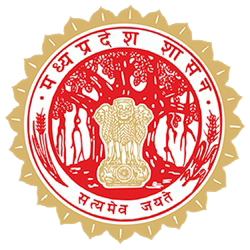EXCLUSIVE RIGHTS FOR WOMEN
1. Women have the right to equal pay
According to the provisions listed under the Equal Remuneration Act, one cannot be discriminated on the basis of sex when it comes to salary, pay or wages.Working women have the right to draw an equal salary, as compared to men. Women are eligible to get an equal pay under the laws of India.
2. Women have the right to dignity and decency
In an event in which woman is the accused, any medical examination procedure on her must be performed by — or in the presence of — another woman.
3. Women have the right against workplace harassment
The Sexual Harassment of Women at Workplace Act gives a female the right to file a complaint against any kind of sexual harassment at her place of work.
Under this act, she can submit a written complaint to an Internal Complaints Committee (ICC) at a branch office within a period of 3 months.
4. Women have the right against domestic violence
Section 498 of the Indian Constitution insures the protection of wife, female live-in partner or any woman living in a household like a mother or a sister from domestic violence (including verbal, economic, emotional and sexual) by the hands of a husband, male live-in partner or relatives.
The accused shall be punished with a non-bail able imprisonment for a term which may extend to three years and shall also be liable to fine.
5. Female sexual assault victims have the right to keep their identity anonymous
To ensure that her privacy is protected, a woman who has been sexually assaulted may record her statement alone before the district magistrate when the case is under trial, or in the presence of a female police officer.
6. Women have the right to get free legal aid
Under the Legal Services Authorities Act, female rape victims have the right to get free legal aid or help from the Legal Services Authority who has to arrange a lawyer for her.
7. Women have right not to be arrested at night
Unless there is an exceptional case on the orders of a first class magistrate, a woman cannot be arrested after sunset and before sunrise. A woman cannot be arrested before sunrise and after sunset.
In addition, the law also states that the police can interrogate a woman at her residence only in the presence of a female police officer and family members or friends.
8. Women have the right to register virtual complaints
The law gives women the provision for filing virtual complaints via e-mail, or writing her complaint and sending it to a police station from a registered postal address.
Further, the SHO sends a police constable to her place to record her complaint. This is in case a woman is not in a position to physically go to a police station and file a complaint. Laws for women in India.
9. Women have the right against indecent representation
Depiction of a woman’s figure (her form or any body part) in any manner that is indecent, derogatory, or is likely to deprave, corrupt or injure the public morality or morals, is a punishable offence.
10. Women have the right against being stalked
Section 354D of the IPC makes way for legal action to be taken against an offender if he/she follows a woman, tries to contact her to foster personal interaction repeatedly despite a clear indication of disinterest; or monitor the use by a woman of the internet, email or any other form of electronic communication. Stalking, in any form, is a crime.
11. Women have a right to Zero FIR
An FIR that can be filed at any police station irrespective of the location where the incident occurred or a specific jurisdiction it comes under, the Zero FIR can later be moved to the Police Station in whose jurisdiction the case falls under. This ruling was passed by the Supreme Court to save the victim’s time and prevent an offender from getting away scot-free.
Special Women Rights
- Government can make provision in favor of women for ensuring just and humane conditions of work and maternity relief and ensures equal pay for equal work
- There are some grounds available to the wife only, both in Hindu and civil marriages
- A Hindu wife is entitled to be maintained by her husband. If there is a decree of maintenance against the husband and the couples have been living apart for over one year, it would be a ground for the wife to seek dissolution of marriage. Here again the Muslim Personal Law has a different set of conditions for the annulment of an Islamic marriage.
- An abortion or miscarriage due to natural causes is not an offence. Therefore, the law does not deal with it. However, violent and forceful abortion is a crime. The punishment could even be life imprisonment.
- The Hindu Succession Act gives male and female heirs almost equal right to inheritance. Any property possessed by a female Hindu shall be held by her as full owner and not as a limited owner.
- The Child Marriage Restraint Act specifies the cut-off age for marriage as 18 years, protecting women from child marriage.
- For the guilty of bigamy (multiple marriages) the punishment is up to seven years imprisonment.
- Up to 7yrs of marriage if women commit suicide IPC can punish the suicide victim’s husband with up to 10 years imprisonment if found guilty.
- Law punishes individuals who have insulted the modesty of a woman. Offensive language sounds, gestures and intrusion of a woman’s privacy are punishable, and an individual who has assaulted a woman, used criminal force on her or outraged her modesty in any other way can be punished with imprisonment of up to 2 years.




